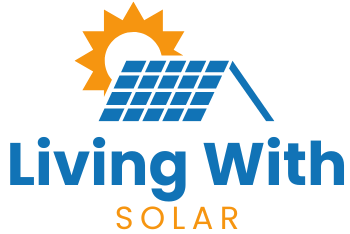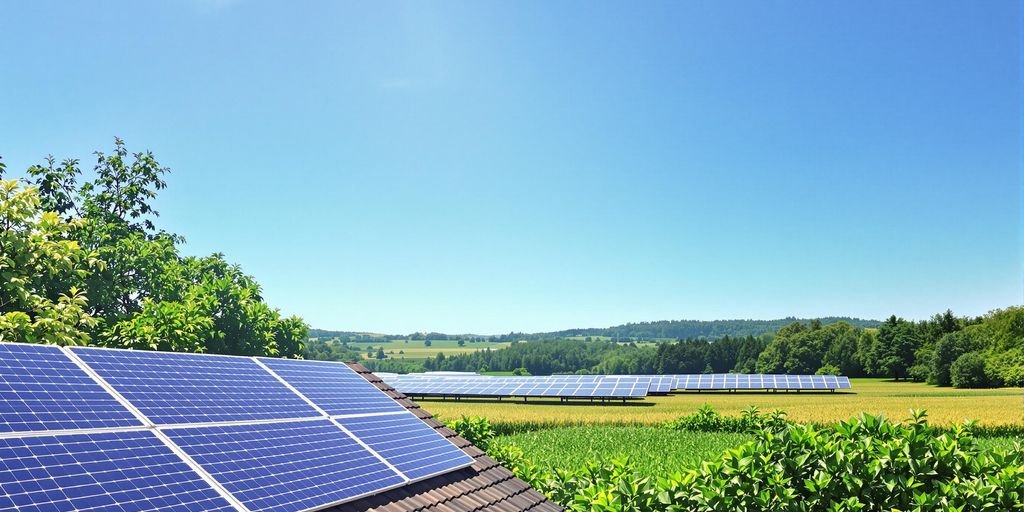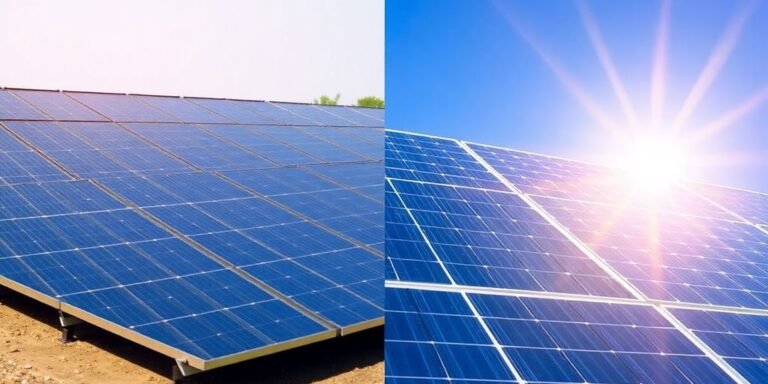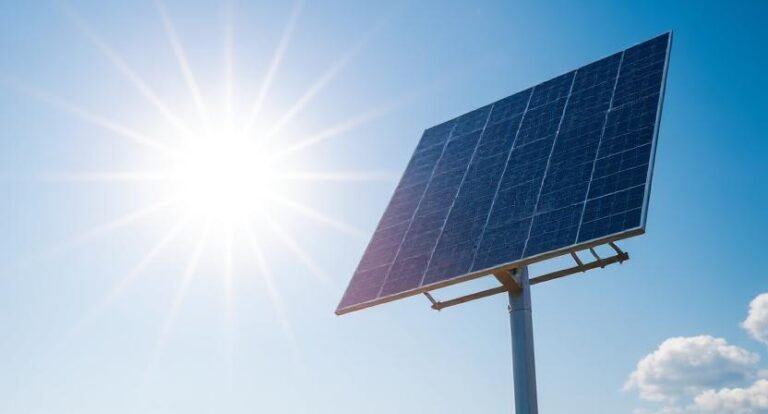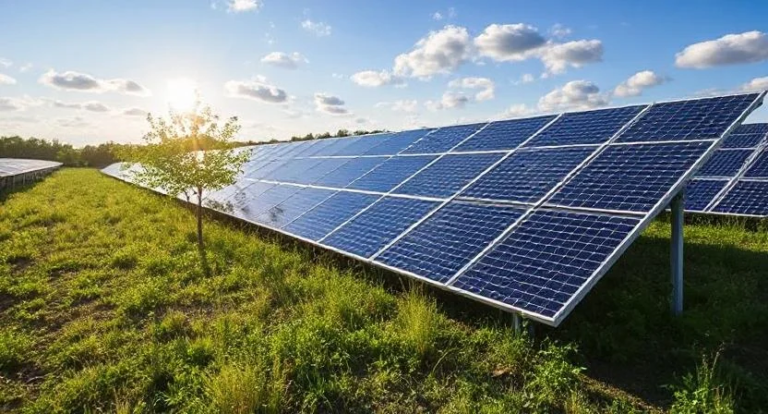Thinking about solar panels? They’re popping up everywhere these days. Not just because they’re eco-friendly, but they can also save you some cash.
Imagine reducing your electric bill and maybe even getting some tax breaks. Plus, they’re pretty low maintenance. Sounds good, right? Let’s dive into what makes solar panels a smart choice for many homeowners.
Key Takeaways
- Solar panels help cut down on electricity costs, making them a financially smart decision.
- Installing solar panels can increase your home’s value, appealing to potential buyers.
- They offer a way to reduce your carbon footprint, contributing to a cleaner environment.
- You might qualify for tax credits and subsidies, which can ease the cost of installation.
- Solar technology is getting better, with improvements in efficiency and storage options.
Environmental Advantages of Solar Panels

Reduction in Carbon Footprint
Switching to solar panels is one of the most effective ways to cut down on our carbon footprint. By harnessing the power of the sun, we can significantly reduce our reliance on fossil fuels, which are notorious for releasing harmful carbon emissions into the atmosphere.
Solar energy is a clean, renewable resource that doesn’t produce greenhouse gases during operation. This means that every kilowatt-hour of solar-generated electricity you use is a step towards a healthier planet.
Plus, as more people adopt solar, the cumulative effect can lead to a substantial decrease in overall carbon emissions, helping to combat climate change.
Conservation of Water Resources
Traditional power generation methods, like coal and natural gas plants, consume vast amounts of water for cooling and other processes. In contrast, solar panels require minimal water to generate electricity.
This is a huge advantage, especially in regions where water is scarce. By opting for solar energy, we not only save water but also protect aquatic ecosystems from thermal pollution and other harmful effects of water-intensive energy production.
Floating solar panels, which are deployed over water bodies, can even reduce evaporation, conserving water further.
Promotion of Energy Independence
Solar panels empower us to produce our own electricity, reducing the need to import energy from other regions or countries. This not only enhances national energy security but also decreases the environmental impact associated with transporting fuels over long distances.
The ability to generate electricity locally means fewer emissions from transportation and a more stable energy supply.
In the long run, widespread solar adoption can lead to a more resilient and self-sufficient energy infrastructure, less vulnerable to geopolitical tensions and supply disruptions.
Financial Benefits of Solar Panel Installation
Reduction in Electricity Bills
Ever opened your electricity bill and thought, “Wow, that’s a bit steep this month”? Well, installing solar panels can help with that. By generating your own electricity, you can significantly cut down on what you pay to the utility company.
Imagine slashing your monthly bill by half or even more. It’s not just a dream for some folks; it’s their reality. Depending on where you live and how much sun you get, the savings can be pretty substantial.
Eligibility for Tax Credits and Subsidies
Now, let’s talk about tax credits and subsidies. When you decide to go solar, Uncle Sam might give you a pat on the back in the form of tax credits.
Right now, there’s a federal tax credit that lets you claim 30% of your installation costs. Some states even throw in extra incentives, making it even more tempting. These perks can make a big difference in the overall cost.
Increase in Property Value
Here’s another cool thing: solar panels can actually boost your home’s value. If you ever decide to sell, potential buyers might be willing to pay more for a house that’s already set up with solar.
It’s like having a modern kitchen or a fancy bathroom—it’s an upgrade. And with energy costs always on the rise, a solar-equipped home is a smart investment.
Technological Advancements in Solar Energy
Efficiency Improvements in Photovoltaic Cells
I’ve always been fascinated by how much solar panels have evolved over the years. One of the most exciting advancements is in the efficiency of photovoltaic cells.
These cells, which convert sunlight into electricity, have become more efficient, meaning they can generate more power from the same amount of sunlight. It’s like getting more juice out of the same orange.
This leap in efficiency is a game-changer for homeowners like me who are looking to maximize energy output while minimizing roof space.
Integration with Smart Home Systems
Nowadays, solar panels aren’t just standalone units. They’re becoming an integral part of smart home systems. Imagine controlling your solar energy production and consumption right from your smartphone.
It’s not just about generating power anymore; it’s about using it smartly. I can adjust my energy usage based on real-time data, which is pretty cool. Plus, integrating solar with smart systems helps in optimizing energy use, leading to even more savings.
Development of Solar Battery Storage
Solar energy storage has come a long way too. With advancements in battery technology, storing solar power for later use is becoming more feasible and affordable. This means I can store excess energy produced during sunny days and use it when the sun isn’t shining.
It’s like having a backup generator without the noise and fumes. Lithium-ion batteries are particularly noteworthy for their efficiency and longevity, ensuring that I can rely on solar power even during cloudy days or at night.
Solar technology is not just about harnessing the sun’s energy; it’s about integrating it seamlessly into our lives. As these technologies continue to evolve, they promise a future where solar power is not only efficient but also incredibly user-friendly.
Impact of Solar Panels on Home Value
Increased Resale Value
When I first thought about solar panels, I was mostly worried about the cost. But then I learned that homes with solar panels can actually fetch a higher resale price.
Buyers are often willing to pay more for a home with solar panels because they see the long-term savings on electricity bills. Some reports even suggest that solar panels can add up to $15,000 to a home’s value. That’s a pretty big deal if you’re thinking about selling your house in the future.
Attraction for Eco-Conscious Buyers
Let’s face it, more people are becoming eco-conscious these days. This means that homes with solar panels are more attractive to a growing segment of buyers who are looking to reduce their carbon footprint.
In a way, having solar panels is like having a badge of honor for sustainability. It shows that you’re committed to green living, which can be a big selling point.
Long-Term Investment Benefits
Investing in solar panels isn’t just about saving money on your electric bill. It’s a long-term investment that pays off in more ways than one. Over time, the savings can really add up, making the initial cost worth it.
Plus, with net metering, you might even make some money back by selling excess electricity back to the grid. It’s like getting a little bonus for doing something good for the planet.
Solar panels not only help the environment but also increase the value of your home, making them a smart investment for the future.
Maintenance and Longevity of Solar Panels
Low Maintenance Requirements
One of the best things about solar panels is how little maintenance they need. Most of the time, you don’t have to do much at all. Occasionally, you might need to clean off some debris or dirt, but that’s about it.
If you don’t want to handle it yourself, you can hire a professional, but expect to pay a bit for the service. It’s also a good idea to keep an eye on how much energy your panels are generating. If there’s a noticeable drop and it’s not because of cloudy weather, you might need to call in an expert.
Durability and Lifespan
Solar panels are built to last. With no moving parts, they’re pretty tough and can keep working for a long time. Most panels are expected to last around 25 to 30 years, sometimes even longer.
This means you won’t have to replace them often, which is great for your wallet and the environment.
By not replacing them often, we’re also cutting down on the need for mining raw materials like silicon and aluminum. Modern monocrystalline solar panels can even stretch their lifespan to 30 or 40 years, depending on their quality and how well they’re looked after.
Professional Maintenance Services
If you’re not the DIY type, professional maintenance services can be a good option. These experts can clean your panels and check for any issues that might affect performance. While this might cost a bit, it can save you from bigger problems down the line.
Plus, having a pro take a look means they’ll spot things you might miss, keeping your solar system running smoothly for years.
Solar Energy and Grid Stability

Contribution to Grid Stability
Solar panels can play a huge role in making the grid more stable. When you have solar panels, any extra electricity they produce can be sent back to the grid.
This means that during times when everyone is using a lot of power, like hot summer afternoons, solar panels help keep things balanced. This extra boost can prevent blackouts and reduce stress on the grid.
Net Metering Benefits
Net metering is a system that lets you earn credits for the extra electricity your solar panels send to the grid. These credits can then be used to offset your electricity bill when your panels aren’t producing enough, like at night.
It’s a win-win because it encourages more people to install solar panels and helps make the overall electricity system more efficient.
Reduction in Grid Overload
By using solar panels, especially in areas with a lot of sun, we can reduce the load on traditional power plants.
This means less burning of fossil fuels and less pollution. Plus, with less demand on the grid, there’s less chance of it getting overloaded and causing power outages. It’s a simple way to make our energy use more sustainable and reliable.
Switching to solar energy not only helps the environment but also makes our power systems more robust. It’s about creating a future where energy is both clean and dependable.
Solar energy is a clean and renewable power source that reduces reliance on fossil fuels and can lead to significant savings on electricity bills. However, challenges include weather dependence, high initial costs, and space constraints for installation.
Technological advancements are improving efficiency and energy storage, making solar more practical.
Additionally, solar energy contributes to environmental benefits, job creation, and can enhance property values.
Understanding both the advantages and limitations is crucial for making informed decisions about solar energy adoption. Learn more about solar energy benefits.
Suitability of Solar Panels for Different Climates
Performance in Various Weather Conditions
Solar panels are pretty versatile and can work in all sorts of weather. Sure, they need sunlight to generate power, but they can still do their thing on cloudy days. In fact, cold weather doesn’t really slow them down.
Snow might even help by cleaning the panels as it melts and reflecting more sunlight onto them.
It’s fascinating how solar panels can adapt to different climates. However, if you’re thinking about going solar, it’s smart to check out how much sunlight your area gets throughout the year.
Adaptability to Roof Types
Not every roof is created equal when it comes to solar panels. The material of your roof can make a big difference. Asphalt shingles, metal, and tiles are usually the best bets for easy installation. If your roof is made of something else, it might cost a bit more to set things up.
Also, the angle of your roof matters. Roofs that face the sun directly are ideal, but even if yours is a bit off, choosing the right solar panels can help maximize energy production.
Considerations for Shaded Areas
Shade is a solar panel’s worst enemy. If your house is surrounded by tall trees or buildings, it can cut down the amount of energy your panels produce.
But don’t worry too much—there are ways around this. You can trim back trees or use microinverters to help manage shading issues. It’s all about finding the right balance to make sure your solar panels work as efficiently as possible.
Solar panels offer a lot of flexibility, but it’s important to consider your specific situation. Think about the weather, your roof, and any potential shade before making a decision. It’s a long-term investment that can really pay off if you plan it right.
Conclusion
So, there you have it. Solar panels are a pretty solid investment for most folks. Sure, they cost a chunk of change upfront, but think about the long game. Lower electric bills, potential tax breaks, and doing your part for the planet? That’s a win-win-win.
Plus, if you ever decide to sell your house, those panels could bump up your home’s value. Just remember, it’s not all sunshine and rainbows—installation can be pricey, and they work best when the sun’s out.
But if you’re in it for the long haul, the benefits can really stack up. Give it some thought, weigh your options, and see if solar’s the right fit for you.
Frequently Asked Questions
How do solar panels work, and what do they do?
Solar panels use special cells to change sunlight into electricity. They help power your home using the sun’s energy, which is cleaner than using fossil fuels.
What should I think about before getting solar panels?
You should consider the cost, available tax credits, how long you plan to stay in your home, and if your roof is good for solar panels.
What are the environmental benefits of solar panels?
Solar panels help the environment by reducing carbon emissions and using less water compared to fossil fuels. They also help reduce reliance on non-renewable resources.
Do solar panels increase home value?
Yes, homes with solar panels can be worth more. Buyers often pay extra for homes with solar panels because they save on electricity bills.
How long do solar panels last, and are they hard to maintain?
Solar panels usually last 25-30 years and need little maintenance. Just keep them clean and check their performance.
Can solar panels work in all types of weather?
Yes, solar panels can work in most climates. They still produce electricity on cloudy days, and snow can even help by reflecting sunlight onto the panels.
